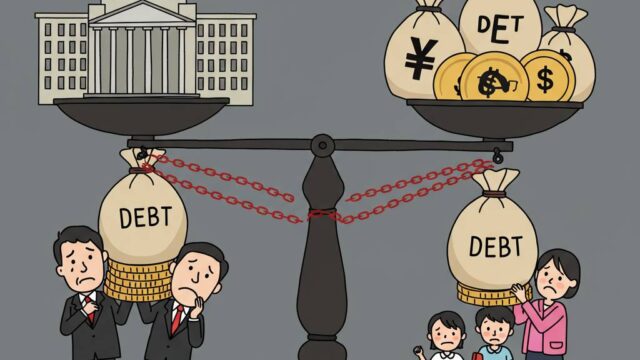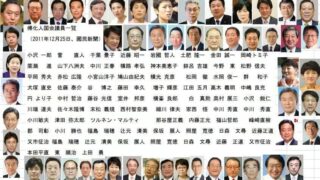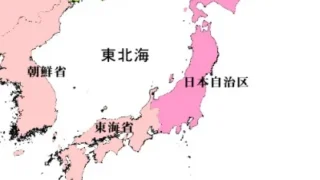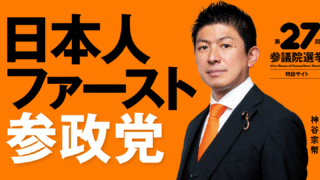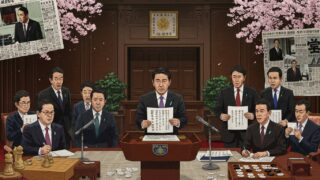Japan’s society has long been influenced by “vested interests” — privileges and advantages held by specific organizations or companies over time. In this blog post, I will explain what vested interests are, give concrete examples, discuss their pros and cons, and explore how they relate to politics and elections in Japan.
1. What Are Vested Interests?
Vested interests refer to benefits, rights, or privileges that certain individuals, groups, or companies have acquired in the past and continue to hold. These interests are often protected by laws or systems, making it difficult for new players to challenge them.
While vested interests can help maintain social stability, they may also hinder competition and slow down technological innovation. They can contribute to the development and maintenance of expertise and infrastructure in certain sectors — but at the same time, they may block new ideas or services from emerging.
In some cases, groups with vested interests may prioritize their own benefits over those of the general public. As a result, they can become an obstacle to social innovation and reform in Japan.
2. Examples of Groups and Companies with Vested Interests in Japan
Let’s take a look at some sectors in which vested interests are commonly found, along with examples of groups or companies that hold them:
| Sector | Group / Company | Type of Vested Interest |
|---|---|---|
| Agriculture | JA (Japan Agricultural Co-ops) | Influence over agricultural policy, control of distribution |
| Healthcare | Japan Medical Association | Power in setting healthcare policies and medical fees |
| Energy | TEPCO, KEPCO, etc. | Monopoly over power grids and local markets |
| Broadcasting | NHK, commercial broadcasters | Exclusive licenses and dominance in the ad market |
| Construction | Major general contractors | Priority in winning public works, suppression of competition |
For example, JA supports farmers and stabilizes food supply, but its strong influence can block new entrants to the market. The Japan Medical Association helps maintain healthcare quality but may also delay the spread of new technologies. In the energy sector, large utilities dominate infrastructure, limiting new players. Broadcasting is similarly restricted, with NHK and private stations holding exclusive rights, making it hard for newcomers to enter the market.
These vested interests bring some stability, but they also tend to resist change and reduce competition.
3. Pros and Cons of Vested Interests
In the media and online discussions, the negative aspects of vested interests are often emphasized. However, I aim to present a fair and balanced view. Here’s a summary of both advantages and disadvantages:
Pros:
- Social Stability
For example, JA supports local farmers and contributes to stable food supply, helping rural economies. - Maintaining Expertise
Organizations with long-standing interests often possess deep knowledge and help sustain quality in their fields. The Japan Medical Association is a good example in the healthcare sector. - Stable Infrastructure
Companies with regional monopolies (e.g., electric utilities) can ensure stable services. After Japan liberalized electricity retail, some smaller retailers failed due to unstable supply, highlighting the value of existing systems. - Job Creation
Many of these companies provide significant employment, supporting local economies — especially in rural areas. - Efficient Policy Implementation
Government cooperation with these groups can speed up policy execution. JA is highly influential in agricultural policymaking, for instance.
Cons:
- Barriers to New Entrants
Vested interests often prevent market competition. This can lead to stagnation in service quality and high costs for consumers. - Slowed Innovation
Protecting existing interests may delay the adoption of new technologies. For example, Japan has been slower than other countries in adopting renewable energy. - Increased Social Costs
Maintaining these interests can create inefficiencies and raise costs — often passed on to taxpayers and consumers. Waste in public works projects is a common issue. - Political Ties
These groups often donate to politicians and provide organized votes in elections, which encourages policies that protect their own interests. For instance, the ride-sharing industry faced strong opposition from the taxi industry, a powerful interest group. - Pressure on Free Elections
Though Japanese elections are supposed to be secret, group support for specific candidates or parties may pressure members to vote a certain way, reducing electoral freedom.
4. How Vested Interests Connect to Politics and Elections
Vested interests are deeply tied to Japan’s political system. Here are some key points:
- Political Support and Return Favors
Interest groups back certain politicians or parties through campaign donations and votes. In return, those politicians often push for favorable policies, reinforcing the group’s position. - Influence of Organized Votes
Large groups like JA, the Japan Medical Association, and major construction firms control substantial voting blocs. Politicians need their support to win elections, so they promote policies that serve these groups’ interests. - Donations and Policy Influence
These groups donate to political campaigns and expect protection of their interests in return. This dynamic reinforces their power and limits reform. - Negative Impact on Society
When more politicians are supported by such groups, policy decisions may prioritize vested interests over public welfare. This slows down necessary reforms and the introduction of new technologies or services.
Conclusion
Vested interests play a significant role in Japan’s society. While they contribute to stability and continuity, they can also obstruct competition, innovation, and reform.
Thanks to social media and increasing transparency, we now have more opportunities to expose the inner workings of these groups. As a citizen, I see this as a chance. By supporting political parties that truly represent the people and promote open politics, we can move toward a better Japan.

